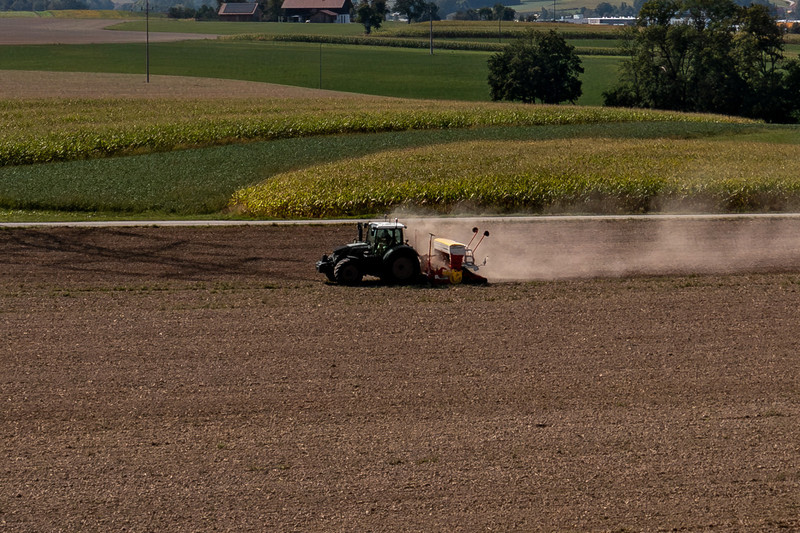The best soil
×
Optimum germination conditions
There are three factors that are key deciders on the emergence of our plants: temperature, moisture and oxygen. These parameters are determined primarily by the type of soil, the location and the weather.
In terms of farming, these three parameters are difficult to influence. One of the biggest influencing factors is the pore volume of the soil. A loose, crumbly tilth structure with many medium-sized pores can absorb water better and provide the roots of each plant with sufficient space and oxygen. It can also warm up evenly and quickly, creating optimum germination conditions.
Soil aggregates
Soil aggregates or soil particles are created by the formation of clay and humus complexes and biological activity below ground. Aggregates can be several millimetres in size and form a very stable structure that promotes the exchange of water and gas.
Harmful compaction
Different soils have different natural load capacities that are influenced by the soil aggregates. Depending on the load applied to the soil, the aggregates can shift in order to compensate for the pressure. This reduces the pore volume. The increasing proportion of fine pores of less than 2 µm is particularly problematic here, because they absorb water without making it available to plants.
This kind of development is often directly associated with extremely intensive type of tillage. It is aggravated even further by frequent passes with heavy equipment in poor soil conditions, as is often the case in high-yield sites.
To create optimum germination conditions, it is crucial that harmful compaction is avoided and that well-balanced aggregates with large numbers of medium-sized pores are promoted.
Revitalising the soil
Soil is our most important asset and is one of our finite resources. In Europe, we lose 2.46 ton / ha of soil through erosion every year. Worldwide, it is estimated that 224 billion tons are lost.
Fallow land is particularly at risk. The lack of vegetation makes the soil more susceptible to erosion by wind and rain. Dry fields are unable to absorb the volume of water precipitated during heavy rainfall events due to the hydrophobicity of the dry soil. Permanent vegetation or very short fallow periods make it possible to retain more moisture in the soil. The leaves reduce evaporation and water is fed back into the soil as a result of dew formation.
Another positive effect is the promotion of biological activity in the soil to create stable soil aggregates that can absorb and release water efficiently. Careful arable management can also be a solution to prevent or loosen up compaction. Some crops, such as field beans and sunflower seeds, manage to break up compaction with their strong root growth and thus improve the soil.
With the FOX compact combination from PÖTTINGER, you can create the optimum germination conditions. This smooth running machine operates reliably and efficiently on light to medium soils. The discs incorporate organic matter reliably and break up surface encrustations to create a perfect tilth. The rear roller provides sufficient consolidation to make sure that the seed is properly covered. All in all, the FOX compact combination creates an optimum seedbed.